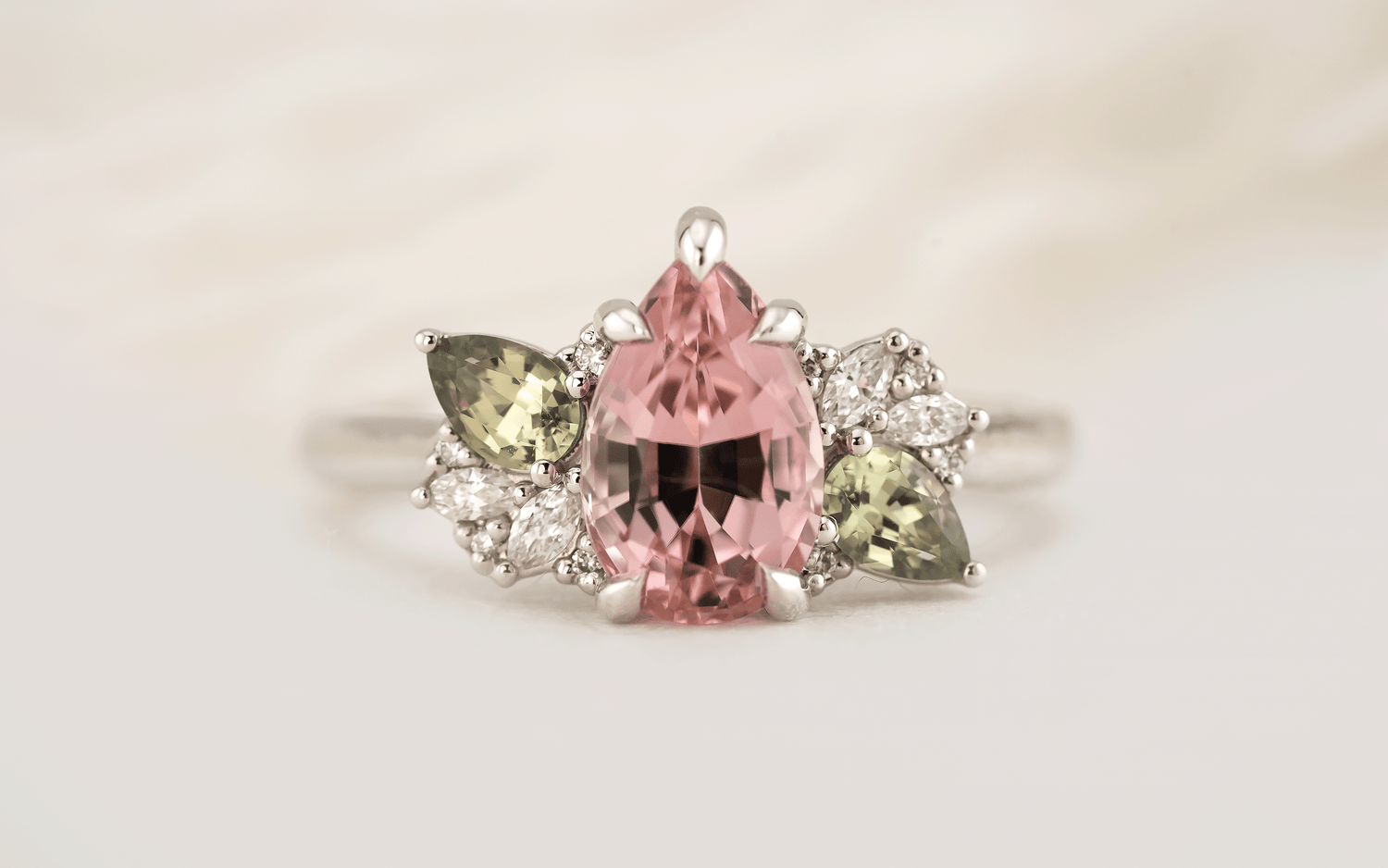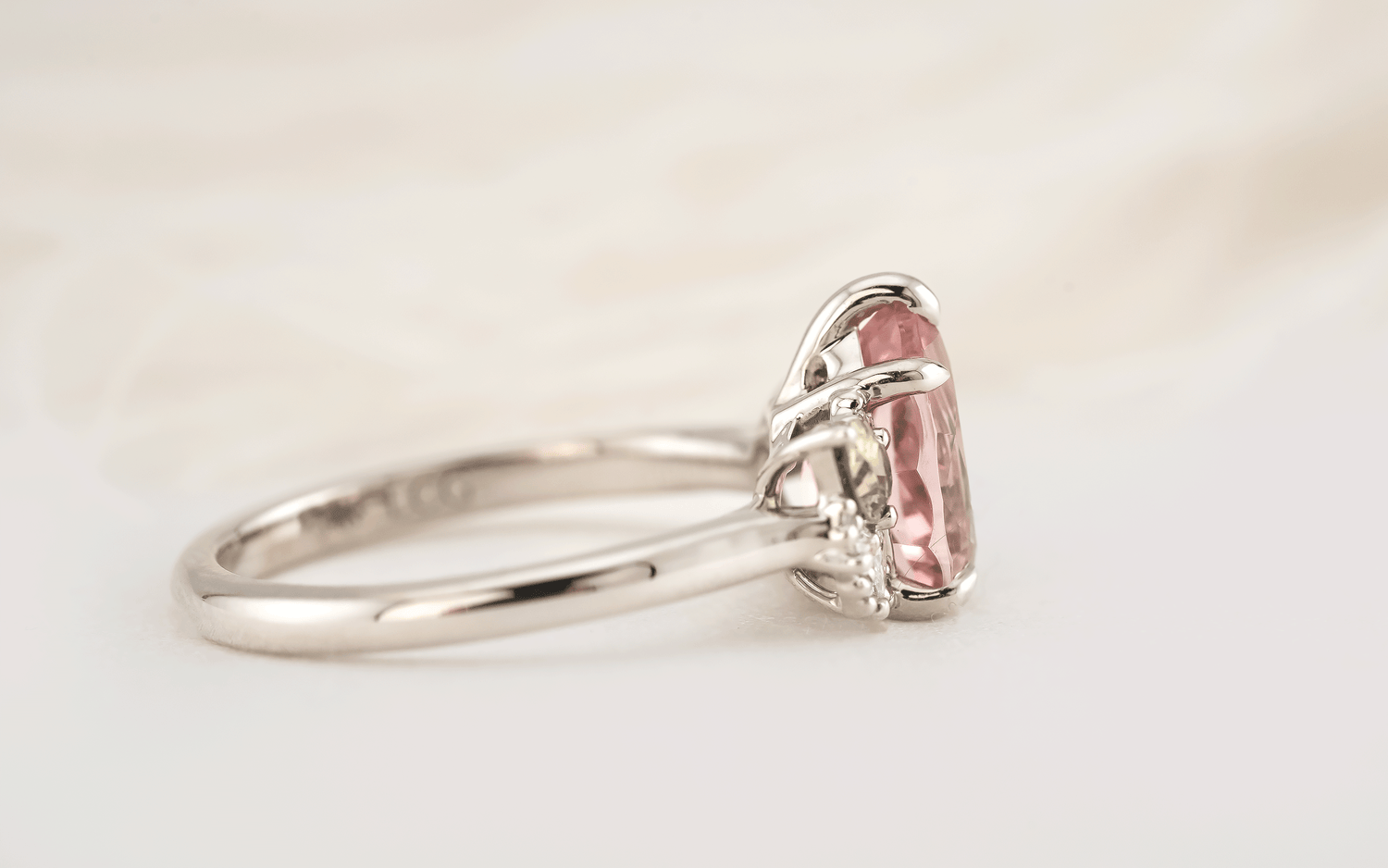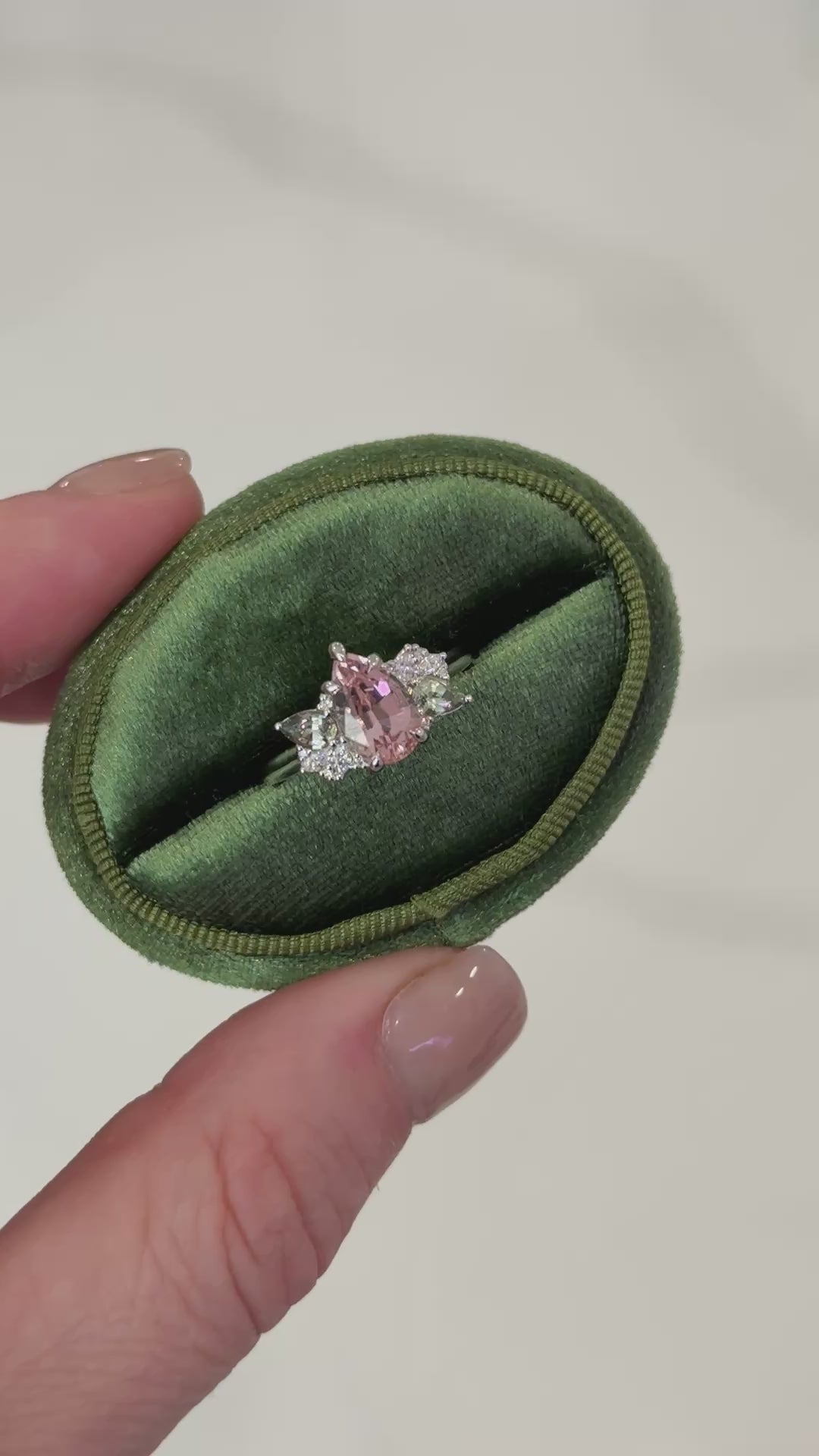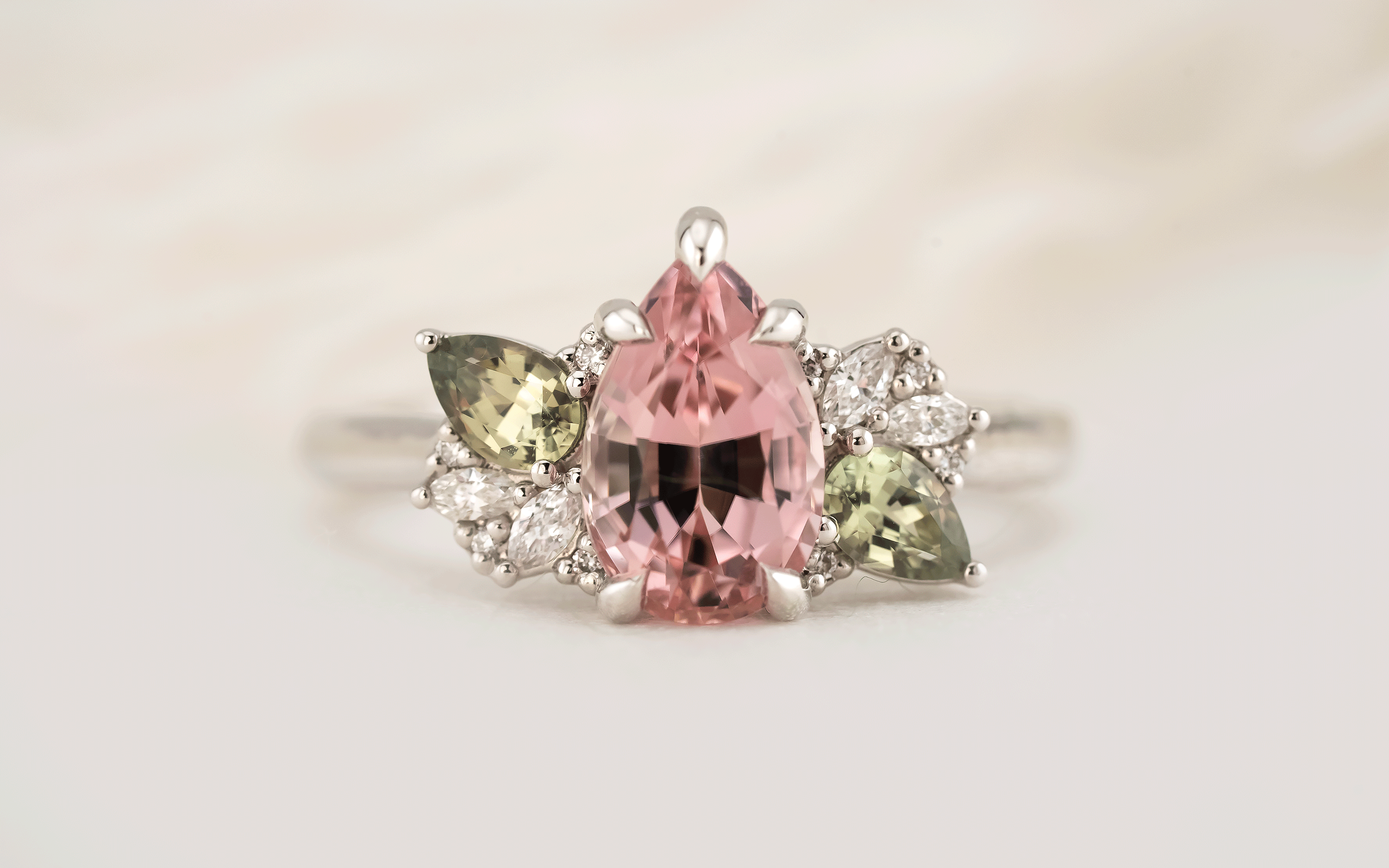
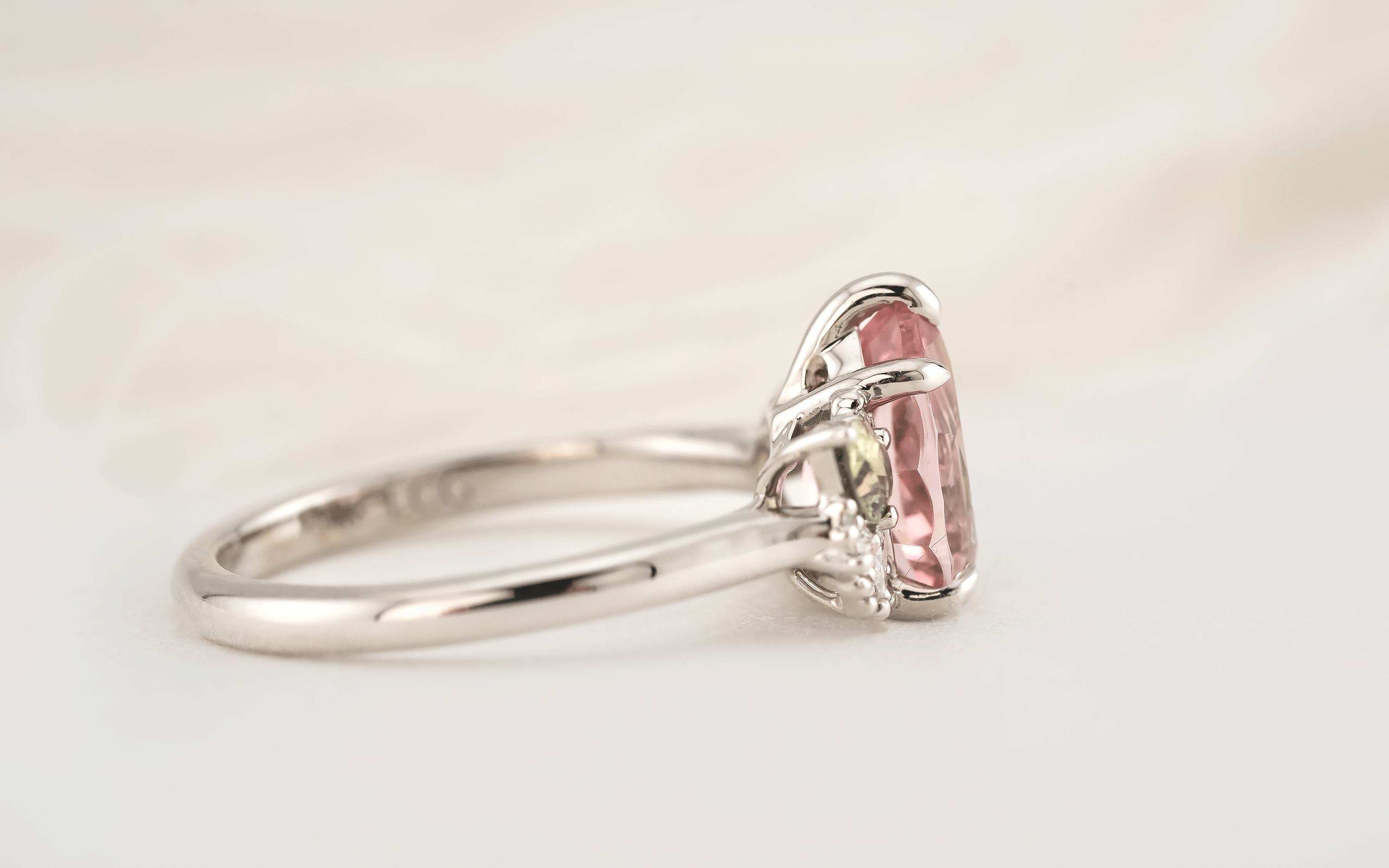
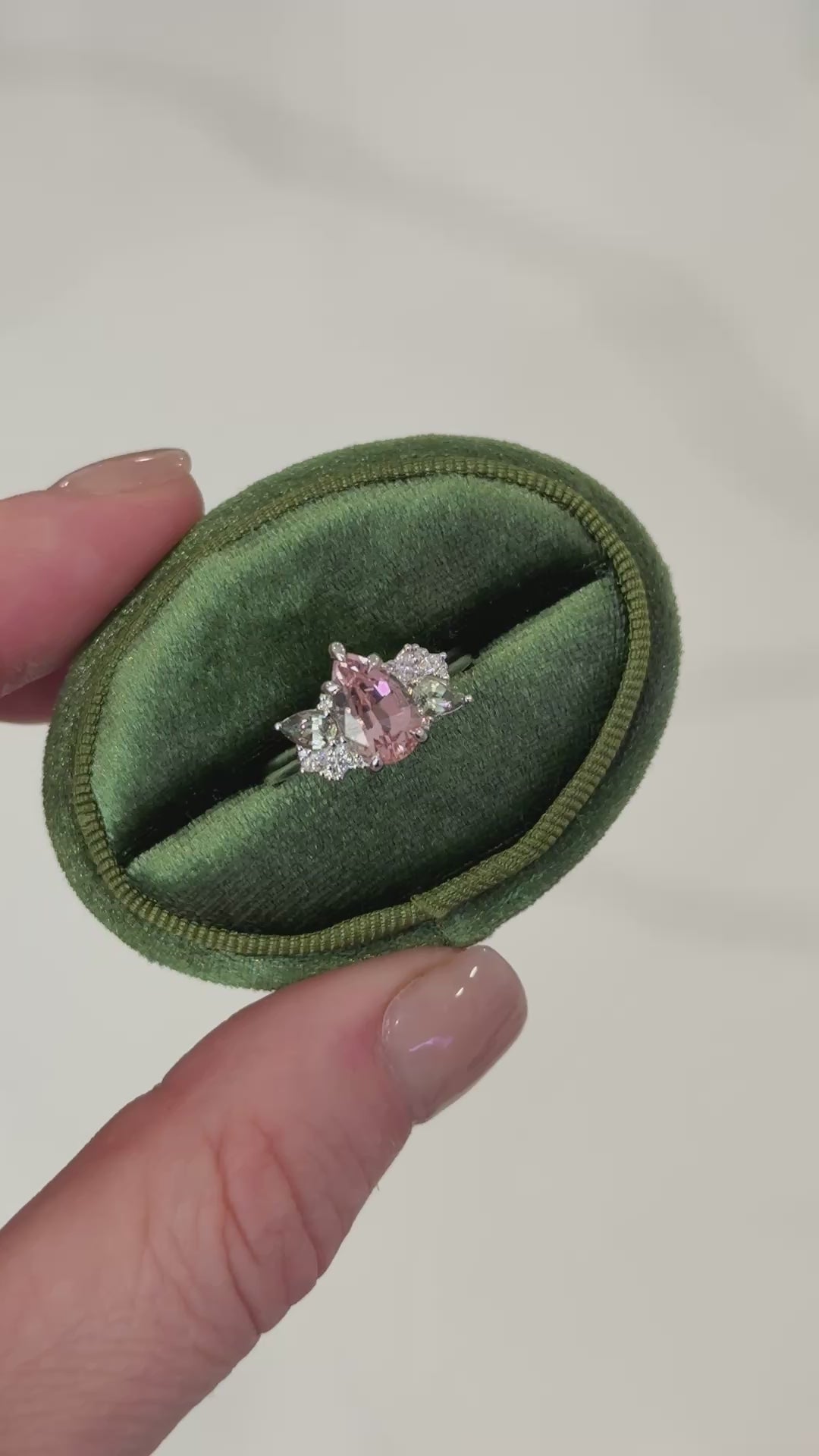
About Natural Tourmaline
-
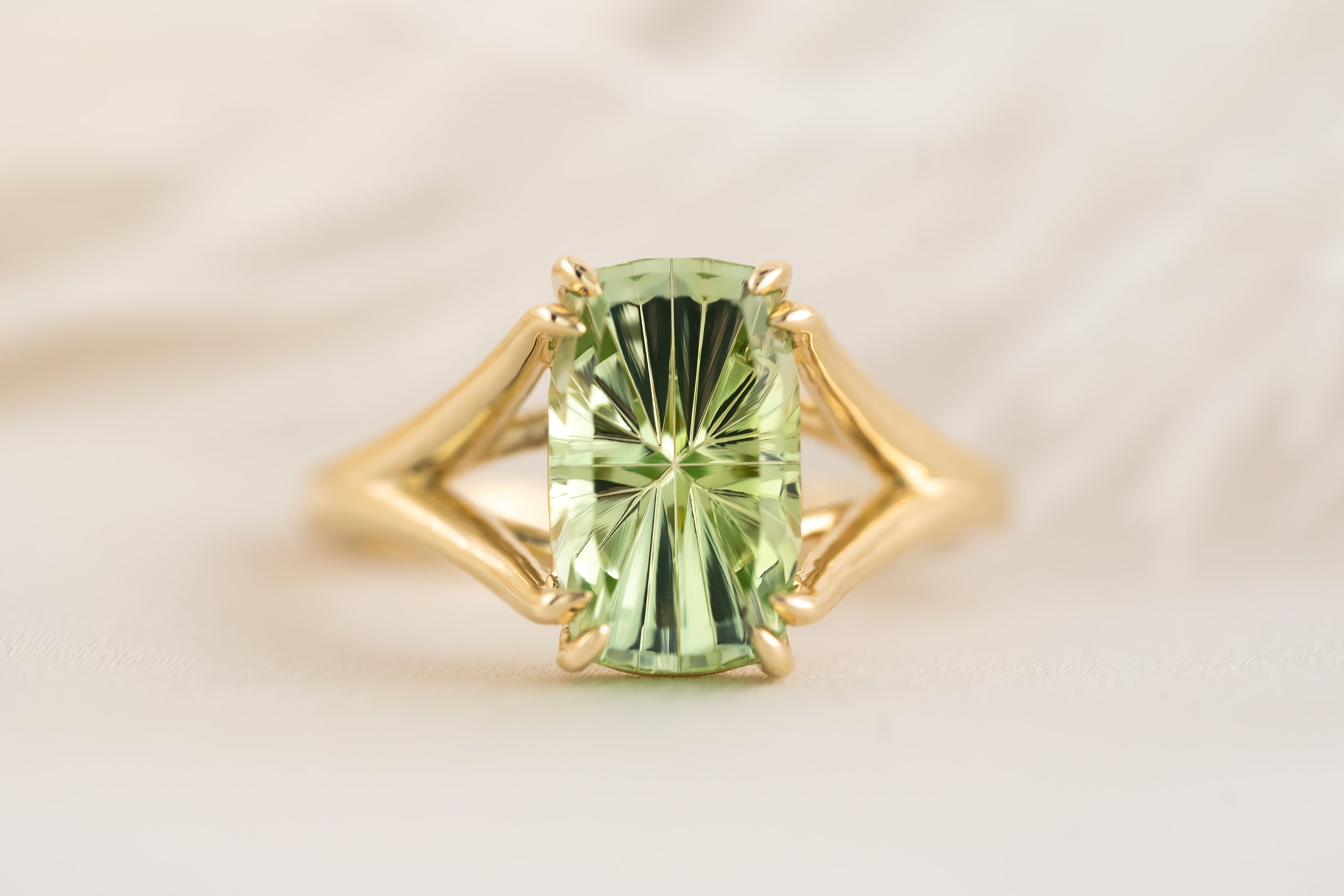
Hardness
Tourmaline falls in the 7-7.5 range on the Mohs scale, which makes it a good choice for using in jewelry. While it is not as hard as sapphires, it's still durable enough for everyday wear, especially in pieces like engagement rings. With proper care and maintenance, your tourmaline ring can last for generations.
- The Mohs scale is a measurement system used to assess and compare the hardness of minerals. Developed by Friedrich Mohs in 1812, it assigns a ranking from 1 to 10 to minerals based on their ability to scratch or be scratched by other minerals. This scale provides a simple and practical way to understand the relative hardness of different minerals, with 1 being the softest (e.g., talc) and 10 the hardest (e.g., diamond).
-
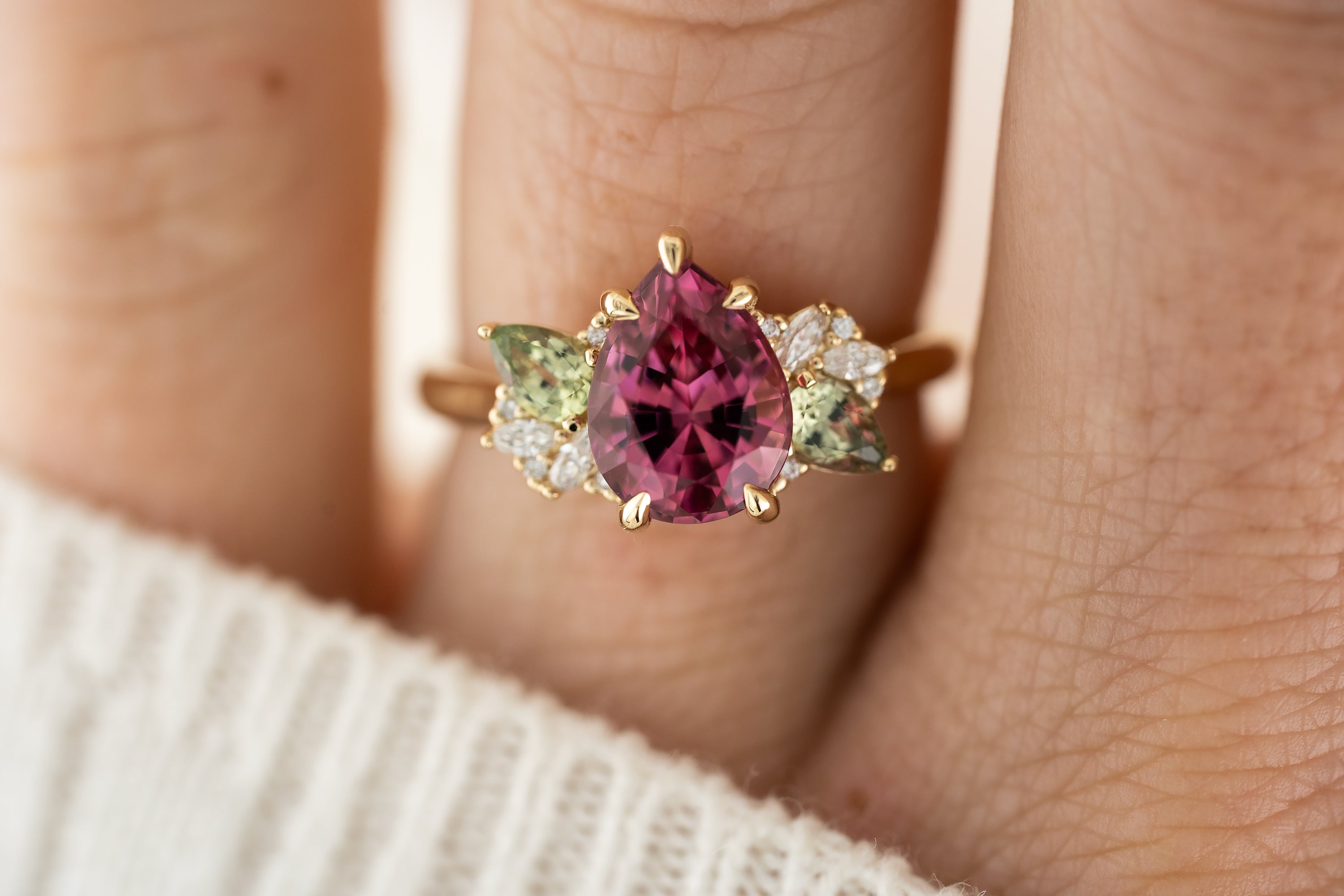
Color Range & Varieties
Rubellite
Rubellite is a variety of tourmaline that displays a rich, intense pink to red color. It is highly valued as a gemstone due to its vibrant hues.
Indicolite
Indicolite is a blue variety of tourmaline. It can range from light blue to deep blue, and the intensity of the color can affect its value.
Verdelite
Verdelite is the green variety of tourmaline. Its color can vary from light green to deep emerald green.
Watermelon Tourmaline
This unique variety of tourmaline has a pink center surrounded by a green outer layer, resembling a slice of watermelon.
Paraíba Tourmaline
Paraíba tourmaline is famous for its striking neon or electric blue to green-blue colors. It is highly sought after by collectors and can command exceptionally high prices.
Chrome Tourmaline
Chrome tourmaline is known for its vibrant green color, which is attributed to the presence of chromium.
Dravite
Dravite is a brown to dark brown variety of tourmaline. It is not as commonly used in jewelry as some other tourmaline types but is still appreciated for its earthy tones.
Bi-Color and Tri-Color Tourmaline
These tourmalines exhibit two or three distinct colors within the same crystal. Bi-color tourmalines can have a combination of pink and green, while tri-color tourmalines may feature three distinct sections of color.
-
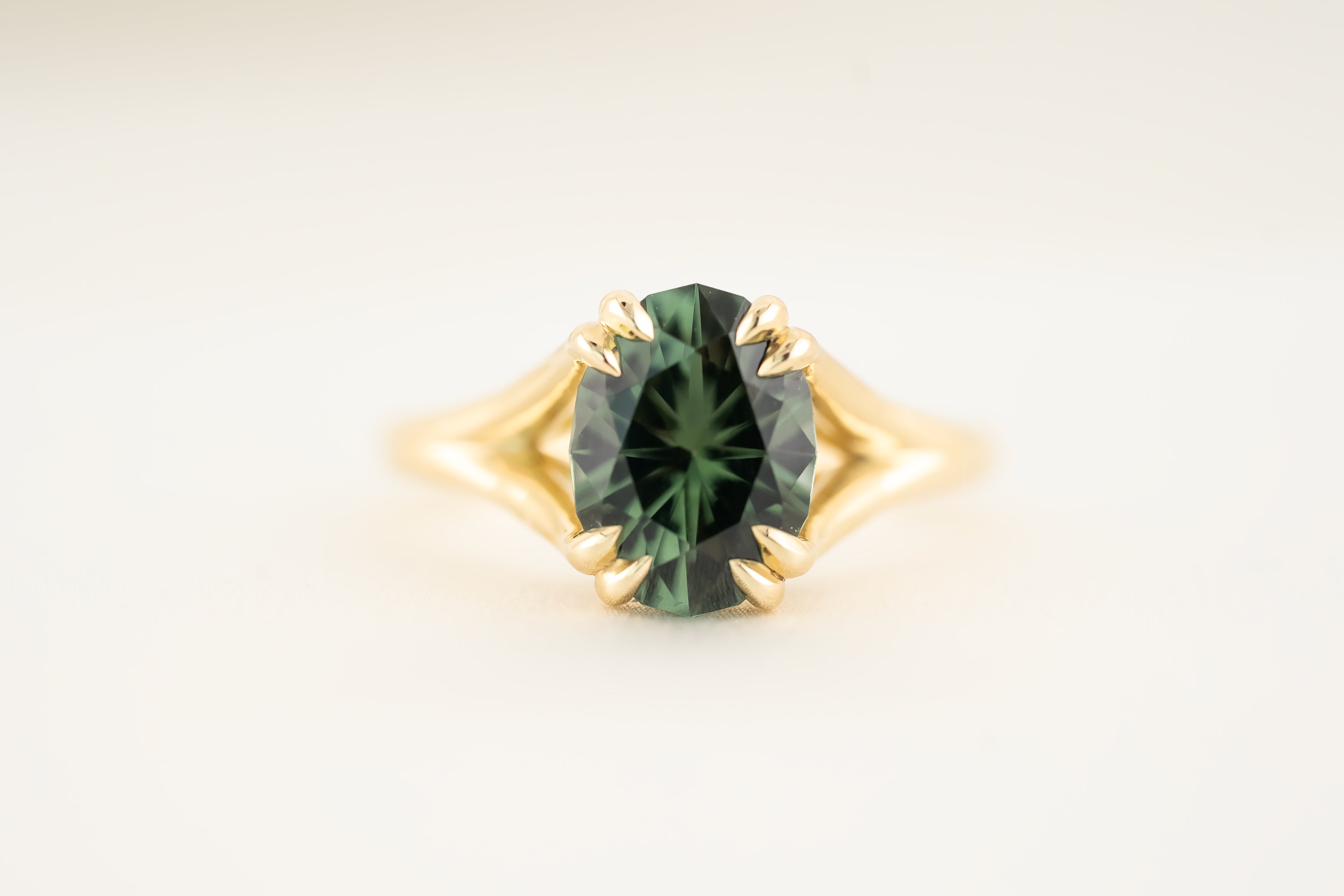
Origin, Stability, & Treatments
Origin
Tourmaline can be found in many locations around the world. Some of the notable sources include Brazil, Afghanistan, Pakistan, the United States (California and Maine), Mozambique, and Madagascar.
Stability
Tourmaline is generally stable to light and isn’t affected by exposure to chemicals, but heat can damage a tourmaline. High heat can alter the color, and sudden temperature change (thermal shock) can cause fracturing.
Treatments
Some tourmalines may be treated with heating or irradiation. When cleaning such treated stones, it's best to use only warm soapy water and avoid harsh chemicals, ultrasonic cleaners, or steam cleaners, which can potentially damage the treatment.
We disclose all treatments on our stones.


